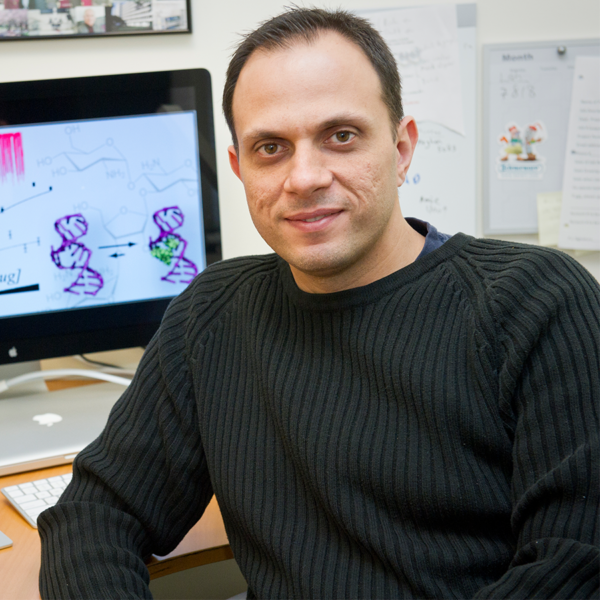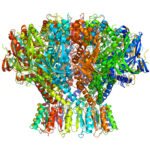About Meni Wanunu
Prof. Wanunu (www.neu.edu/wanunu) completed his Ph.D. in Chemistry at the Weizmann Institute of Science in 2005, with a focus on molecular interfaces and nanomaterials. After two consecutive physics postdoctoral positions at Boston University and the University of Pennsylvania, Prof. Wanunu established his Nanoscale Biophysics Laboratory (NBL) in 2011 at Northeastern University. Current research in the Wanunu lab is aimed at developing single-molecule tools enabled by nanotechnology to address a palette of biophysics-related challenges. Among these topics are developing new methods to resolve structure and dynamics in biomolecular systems, single-molecule DNA localization and sequencing, single-cell analysis, and identification of biomarkers at sub-picomolar levels in complex samples. Another aspect of Prof. Wanunu’s research deals with transport of water through small biomimetic porins, as well as other porous nanoscale materials. Prof. Wanunu is graduate program director at the Physics Department at Northeastern University, as well as Co-Director at Northeastern’s Kostas Advanced Nano-Characterization Facility (KANCF) at Burlington MA, which specializes at atomic-resolution electron microscopy (https://web.northeastern.edu/kancf).



